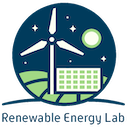The students have understood and deepened the central contents of physics. They are able to define and interpret advanced questions in physics. Students can apply their knowledge to known and unknown problems and develop solutions. This includes in particular a basic understanding of quantum mechanics as well as the application to simple questions (e.g. potential pot, energy transitions in hydrogen atoms). In addition, students are able to transfer their knowledge of thermodynamic potentials to application-related problems in solid state physics with the help of statistical physics.
Bio and Process Engineering (M. Sc.), Environmentally Oriented Energy Technology (M. Sc.)

Renewable Energy Lab
Prof. Dr. Henrik te Heesen
Institute for Operations and Technology Management
Environmental Campus Birkenfeld
You are leaving the official website of Trier University of Applied Sciences